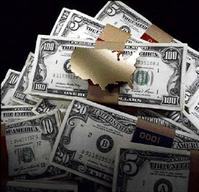Ashford W. Meikle, Staff Reporter
Jared Martinez, chief executive officer and president of Market Traders Institute and author of The 10 Keys to Successful Trading was recently in Jamaica where he conducted a workshop on foreign exchange (forex) trading and the futures and commodities market, utilising his comprehensive forex education programme, The Ultimate Forex Traders Package.
The seminar was organised by World Events for the Caribbean Limited (WE).
Sunday Business sat down with Mr. Martinez to discuss forex trading, edcuation and training.
Sunday Business (SB): What is forex trading?
Jared Martinez (JM): Actually a lot of people are already familiar with foreign exchange trading. For example, when you travel from Jamaica to other countries and you go to a currency booth to exchange Jamaican dollars for U.S. dollars, that's currency trading in a nutshell.
However, in currency trading you are trying to make a profit. It is similar to stock trading where you buy stocks at a low price and sell at a high price.
Currency trading is the same thing, except it is different from stocks. Stocks will top out or they will bottom out (like Enron). But in currency trading, it does not top out or bottom out because your currency is actually a share in the economy.
So, in currency trading, you are trying to make a profit and are able to do it at home, on your computer, 24 times a day.
Seventy five per cent of all foreign currency exchange takes place in London. About US$2.5 trillion dollars is traded daily on the foreign exchange market, so it is a very liquid market.
That means you can always get in and get out. It's not like buying a stock. Sometimes you buy a stock and it's hard to sell back that stock. Spreads are very tight on the foreign exchange because it is so liquid.
But the most important thing is to learn how currency trading works before getting involved in it.
SB: Are you saying it's risky?
JM: Any investment can be quite risky. Some people say that trading on the foreign exchange currencies is extremely risky.
Well trading anywhere without knowledge of how the market works is risky. Ignorance creates risk. If you get involved in anything that you don't know about, you are setting yourself up to be taken advantage of.
SB: How did currency trading begin?
JM: Prior to 1995 if a trader wanted to trade in the currency market he had to have a net worth in excess of US$1 million.
So what it did is that it limited a lot of people from getting into the market. It was mainly for the institutions, the banks, the financial institutions. In 1995 Forex brokers started to take a smaller side of the trade.
Now, they would put up a trading account for US$3,000. This allowed the small investors to start trading in the market, just like the banks. And it allowed a small investor to trade on the foreign exchange 24 hours a day because, you are dealing with all the financial centres in the world.
SB: Why should an individual get involved in currency trading?
JM: The real reason is that there are certain things that are international. A smile is international, fear is international, and wanting to make a profit, to make more money for your family is international.
Currency trading is an avenue to make more money. What type of avenue? We are not looking for people to quit their jobs and become full-time traders that's not what we are after.
We are saying, 'don't go to Las Vegas to a casino and start gambling' because I promise you that if you show up at the casino, with $1,000 and you don't know what you are doing, then you are going to lose that $1,000. If you want to call that entertainment and you like that, then I guess get involved in the currency market and don't educate yourself because you are going to have the same experience. We are trying to say don't go down that road. Be the educated gambler, if you will. We are not telling you to quit your job. That's not how it works.
SB: How do you go about educating yourself?
JM: Our training course, The Ultimate Traders Package, is literally a an education package that teaches people how to trade in the foreign currency exchange. It provides them with trading software and market data, live, real-time data of where prices are in the market and it teaches them, in a post programme, how to not only trade successfully but also addresses the psychological side of trading on the Forx.
Our training methodology focuses on three main things: determining market direction, a consistent entry strategy that works, and number three we teach them two exit strategies. One exit strategy is to cash in profits -- that consistently works -- that's how we get paid and the most important exit strategy is how to manage your risk so that [if] the trade not going your way you need to exit the market and take in as little loss as possible.
We want to empower people to make an educated decision in the market. Too many people around the world feel that the market is mysterious and magical. It does not work that way. We don't believe it its mysterious and we don't believe it's magical. We believe and prove that there is a reason why it moves this way and why it moves that way.

